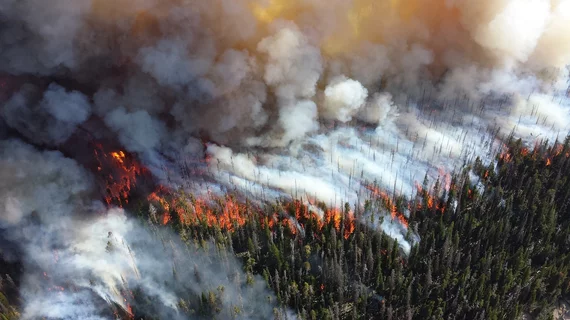As massive wildfires continue to spread throughout the Western United States, a cardiologist joined CBC News in Canada to explain why the carnage could make it even harder to contain the ongoing COVID-19 pandemic.
Christopher Labos, MD, MSc, of McGill University in Montreal, explained that this “convergence of calamities” will make it harder for people to know if its wildfire-related air pollution causing issues with their breathing—or if it has to do with a potential COVID-19 infection. And for people who have been diagnosed with COVID-19, he explained, these wildfires will certainly make things worse.
“If you’re having a hard time breathing when the air quality is good, you’re going to have a much harder time breathing when the air quality is poor,” he said during the interview.
Labos also noted that this will increase the need for testing in any area feeling the impact of these wildfires.
The full interview, which is nearly six minutes long, is available at the below link:

